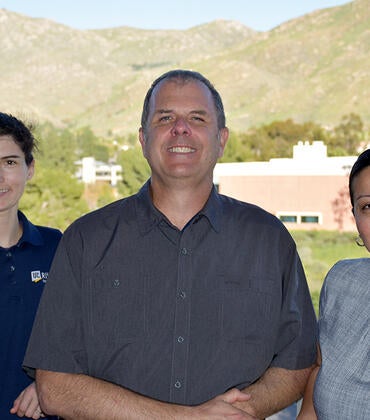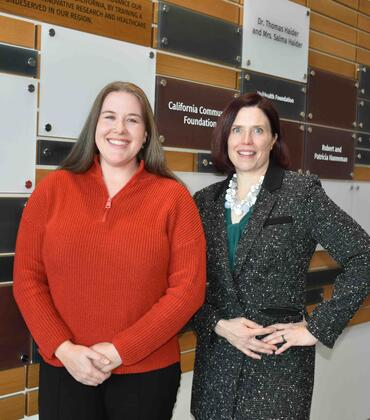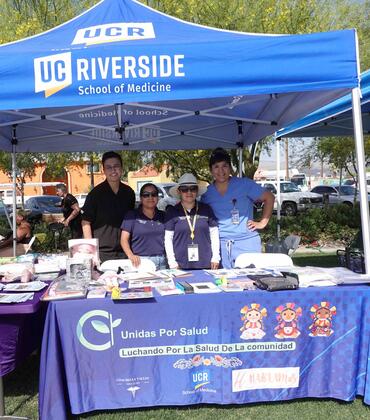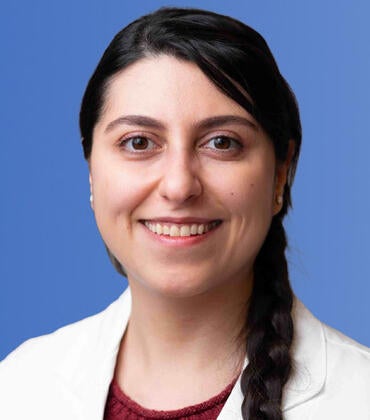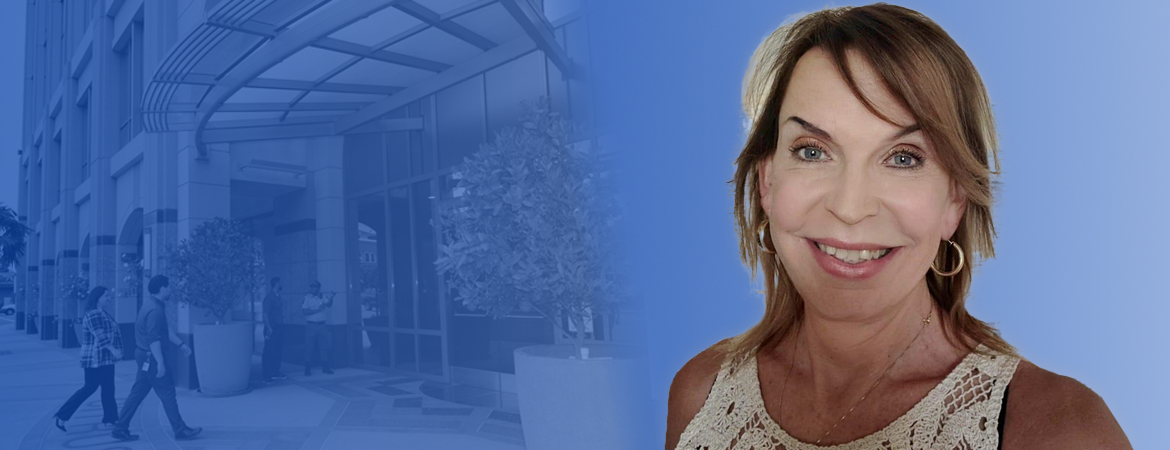
Note: Dr. Woods has left the UCR SOM and is now in private practice.
Recently, a patient advised UCR Health psychiatrist Jami Woods, MD, DPh to dream bigger. “He said, ‘If people are not laughing at your dream, you're not dreaming big enough,’” she recalled. “That was from a patient--that wasn't from a psychotherapist; that wasn't from a PhD psychologist.”
Woods, who is accepting new patients, said she most enjoys working with her patients because she learns from them even as she helps them with their mental health. “They teach me a great deal of everything that I've ever learned,” she explained. “And I'm inspired by their courage and their tenacity and perseverance.”
In fact, Woods’ work with transgender patients helped lead to her own transition. While Woods always knew she was female, she said the word “transgender” didn’t exist when she was growing up in Tennessee in the 1960s.
While working as an anesthesiologist, she began psychiatry training in 1997 to better understand her son’s autism, eventually completing a second residency in 2000 to become a licensed psychiatrist. “In the process of going through it, I started working with some transgender patients, and I recognized, ‘You know what, I've always known,’” Woods recalled. But it took a significant heart attack nine years ago to push her to begin living as her true self. "I was in excellent shape," she said, "but I was pretending to be somebody that I wasn't."
Encouraging patients through personal experience
In November 2017, Woods transitioned to female. “I made the bravest decision that I could ever make, and I just ripped up my happiness plan and wrote a brand new happiness plan,” she said. The move cost her friends and her place in her medical practice, and subjected her to harassment and even imprisonment.
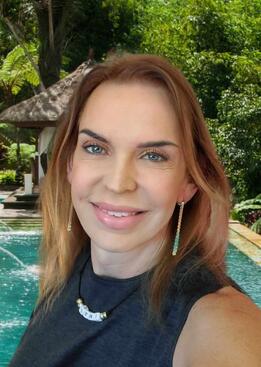
Now, though, Woods uses her experiences as a lesson to encourage her patients. “I tell them, if I can rip up that happiness plan, a lifetime of that, and write a brand new one from scratch, then they can rewrite their happiness plan too,” she explained.
Woods added that she wouldn’t be the person she is today without the challenges she’s faced. “I think everything that happens in our lives prepares us for this moment,” she said. “I'm the product of everything that has happened to me, and I wouldn't be me if it weren't for the bad things as well as the good things.”
She is also grateful that her life experiences brought her to psychiatry. "It's been the perfect fit for me," she said. "I can't imagine being anything else other than being a psychiatrist."
Woods’ background and experiences have also helped countless patients improve their lives. When one patient came to see her because they were struggling with medications that weren't working for them, Woods helped stabilize them through the correct prescription, then helped cover the medication cost for several months. “That's a story that makes me look good…but the hero in this story is [the patient], because she has such quiet dignity and such quiet courage that she teaches me the value of getting up every day and doing your best,” said Woods.
For another hypersexual patient in the middle of a bipolar manic episode, Woods prescribed a new medication she knew about to stabilize the patient’s mood. “I had the good fortune of watching that 16 year old hypersexual adolescent female become a 36 year old licensed clinical social worker,” Woods recalled. “To see her run her journey, and to see her tenacity and her perseverance and her courage in terms of dealing with her illness and her transcendence into becoming more than just a diagnostic code, is very inspiring for me too.”
UCR Health psychiatrist Toshia Yamaguchi, MD noted the studied approach Woods takes to medications. “She was previously a pharmacist before she became a doctor, so her experience with medications is unparalleled,” she said. “Her ability to use medications is nuanced and highly informed.” Yamaguchi added that Woods excels at providing patient-centered care, creating an individualized treatment plan depending on each patient’s needs.
Teaching and learning from young people
Woods is dedicated not only to making a positive difference in the lives of her patients, but also in her students. “She is very inspiring to the students at the UCR School of Medicine,” said Yamaguchi.
“The thing that I’m most proud of is that I’m important in the lives of young people,” Woods said. “And I’m proud of the fact that I think more like a Gen Z than a Boomer.” Compared to older generations, Gen Z “[doesn’t] care about my gender identity, they care about police brutality and wealth inequality,” she continued. “I love hanging around young people; young people get you lit up, and they'll teach you stuff too.”
Still, Woods said it’s a symbiotic relationship. “I teach them how to get old….and they teach me how to stay young,” she said. “I can absolutely tell you that 69 is absolutely the best year of my life, and I hope that 70 is going to be even better.”
In exchange, Woods said, “I teach them what happiness looks like.” Noting that many physicians are dissatisfied with their careers, she said, “The things that really get me excited is being a mentor for young people and teaching them how to practice joyful, skillful outpatient psychiatry.”
For Woods, this includes finding the right specialty and maintaining work-life balance. “I picked the wrong specialty, and I had the courage to go back and do a second residency,” she said. She encouraged young physicians to follow their passion rather than money. “The first thing that I would ask a young doctor in training is, “‘Is this what you want to do?’ Because you're going to have to read the peer reviewed literature for the rest of your life,” she said.
For those who enjoy their specialty, her second question focuses on patient workload.
“You can't be everything for everybody, and what you have to do is to tell everybody around you, ‘This is what I can do,’” she said. “It's about putting one foot in front of the other. You can run a marathon if you do that, but you can't sprint a marathon,” she said. “You've got to find your stride in life, and you've got to find your stride at work too.”
Finally, she said she advises young physicians to consider their colleagues and make sure they’re reflecting positive energy.
“Maintaining that work life balance is very, very important for young doctors, and I get to catch them when they're young,” said Woods, adding that she shares her experience of making many of the same mistakes herself. “That's one of the greatest things that I offer to my medical students and my residents here at UC Riverside, is: This girl’s got that work life balance, and I'm going to show you what it looks like.”
Diversifying healthcare in the Inland Empire
Woods is proud of her work at UCR to help diversify healthcare in the region, from adapting the medical school curriculum to better address the community’s needs to supporting individual students. “It's our responsibility to generate the next generation of doctors who want to practice here in the Inland Empire that look like the people that they serve,” she said.
Both Yamaguchi and Lana S. Haddad, MD, a psychiatry resident at UCR, noted Woods’ efforts to improve care for transgender individuals. “Through lectures, mentorship, and curriculum development, she actively works to ensure that all students receive comprehensive education on LGBTQ+ health, emphasizing the importance of empathy, cultural competence, and addressing healthcare disparities,” Haddad explained. “Her expertise in gender-affirming care ensures that transgender patients receive not only medical support but also compassionate mental health care that validates their identities.”
On an individual level, Haddad recalled telling Woods about a pre-med mentee who had faced numerous obstacles yet had the potential to become an outstanding physician. “Without hesitation, she welcomed him as a mentee with open arms, and on the very first day they met, she even offered to cover the cost of an MCAT prep course to support his journey,” said Haddad. Woods “expressed her hope that one day he would contribute to addressing the critical healthcare needs of the Inland Empire as a future physician,” she added.
“There is a tremendous unmet need for qualified positions in this area, and the goal of the University of California, Riverside is to fill that unmet need with folks that want to practice right here, and that look like the patients they serve,” said Woods. “We measure more than just your metrics, your grade point average, your MCAT scores. We want to know your distance traveled,” she added. “I'm very proud of what we're accomplishing here and I'm so grateful to be a part of it.”
